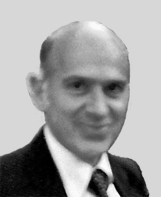Gerd-Günther Grau
Gerd-Günther Grau (born February 15, 1921 in Hamburg ; † December 23, 2016 in Großhansdorf near Hamburg) was a German philosopher and chemist .
life and work
Gerd-Günther Grau was the son of a mother of Jewish descent. His father was an administrative lawyer . After graduating from high school in 1939, Grau was obliged to serve in the Wehrmacht . At the end of the year he was released because of "half-Jewish descent," which had since been discovered. In the winter semester 1940/41, Grau began studying chemistry at the University of Hamburg . Although he was not very interested in chemistry, he was only admitted to one natural science subject. His love was music. At the end of 1944, Grau received a draft order for a camp for Jewish “half-breeds” near Jena . There he was liberated by the Americans on April 14, 1945.
After the war, Gerd-Günther Grau continued his studies at the University of Heidelberg and received his doctorate in physical chemistry in the spring of 1949 with a thesis on the “energy exchange of polyatomic gases on solid surfaces” . Minor subjects were physics and philosophy. He got an assistant position in Heidelberg and became a scientific advisor at the Physico-Chemical Institute. From 1955 to 1971 Grau was an employee of the " Landolt-Börnstein-Tables ".
In addition to his scientific work, Grau followed his main interest through an autodidactic study of philosophy . In the evening he attended a Kant seminar in Karl Jaspers' apartment . He met Rudolf Bultmann in Marburg. In Heidelberg he became friends with Eugen Biser . There he met Karl Löwith and Hans-Georg Gadamer . The " Job situation of religious thought" preoccupied him particularly. Questions of faith have moved him throughout his life. In 1958, Grau presented a religious-philosophical study on Friedrich Nietzsche with the title “ Christian Faith and Intellectual Righteousness ”. In 1963 a book about Sören Kierkegaard followed .
After these two studies were published, Grau was appointed honorary professor of philosophy at the University of Heidelberg in 1964 - to his surprise, he had never taken an examination in philosophy. In 1967 he followed a call to a full professorship for philosophy at the Technical University in Hanover . Grau was director of the Philosophical Seminar there and taught philosophy of religion , the history of philosophy and ethics . Other publications emerged, especially his main work “Ideology and Will to Power. Contemporary reflections on Nietzsche ” . After his retirement (1989) he continued his existential-religious-philosophical research in Hamburg with smaller studies on Kant, Nietzsche, Kierkegaard, Heinrich Heine and Wilhelm Busch .
From 1970, Grau was managing director of the narrow circle of the general society for philosophy in Germany for several years . From 1976 to 1984 he was the editor of the Allgemeine Zeitschrift für Philosophie .
Gerd-Günther Grau died on December 23, 2016 at the age of 95 in Großhansdorf near Hamburg.
Publications
- Christian faith and intellectual honesty. A religious-philosophical study on Nietzsche. Schulte-Bulmke, Frankfurt a. M. 1958
- The self-dissolution of the Christian faith. A religious-philosophical study on Kierkegaard. Schulte-Bulmke, Frankfurt a. M. 1963
- Ed .: Problems of Ethics - put up for discussion at the 1971 Scientific Conference of the Engeren Kreis der Allgemeine Gesellschaft für Philosophie in Deutschland e. V. Contributions by Iring Fetscher, Otto Pöggeler, Karl-Heinz Iltung. Karl Alber, Freiburg / Munich 1972. ISBN 978-3-495-47258-3
- Ideology and will to power. Contemporary reflections on Nietzsche . de Gruyter, Berlin / New York 1984. ISBN 978-3-11-009998-0
- Critique of the absolute claim. Nietzsche - Kierkegaard - Kant . Königshausen and Neumann, Würzburg 1993. ISBN 978-3-88479-818-8
- Reason, Truth, Faith. New studies on Nietzsche and Kierkegaard , Königshausen and Neumann, Würzburg 1997. ISBN 978-3-8260-1343-0
- Two religious fighters - Kierkegaard and Nietzsch e. Catholic Academy, Hamburg 2000. ISBN 978-3-928750-58-5
- The "self-abolition of all great things". Philosophizing with Nietzsche . Königshausen and Neumann, Würzburg 2004. ISBN 978-3-8260-2791-8
- On the philosophy of humor. Wilhelm Busch, Heinrich Heine, Sören Kierkegaard. Bautz, Nordhausen 2012. ISBN 978-3-88309-318-5
Honors
- Honest thinking. Festschrift for Gerd-Günther Grau on his 60th birthday . Edited by Friedrich Wilhelm Korff . Fromann-Holzboog, Stuttgart-Bad Cannstatt 1981. ISBN 978-3-7728-0826-5
- In the summer of 1992 Gerd-Günther Grau was awarded an honorary doctorate by the Faculty of Humanities and Social Sciences at the University of Hanover.
- Against the absolute claim. Gerd-Günther Grau on his 75th birthday . Edited by Friedrich Wilhelm Korff. Königshausen and Neumann, Würzburg 1998. ISBN 978-3-8260-1546-5
swell
- Gottfried Wilhelm Leibniz University of Hanover . Philosophical Faculty. obituary
- Information Philosophy March 2017
- Archive Meinolf Wewel
| personal data | |
|---|---|
| SURNAME | Grau, Gerd-Günther |
| BRIEF DESCRIPTION | German philosopher and chemist |
| DATE OF BIRTH | February 15, 1921 |
| PLACE OF BIRTH | Hamburg |
| DATE OF DEATH | December 23, 2016 |
| Place of death | Großhansdorf , Schleswig-Holstein |

